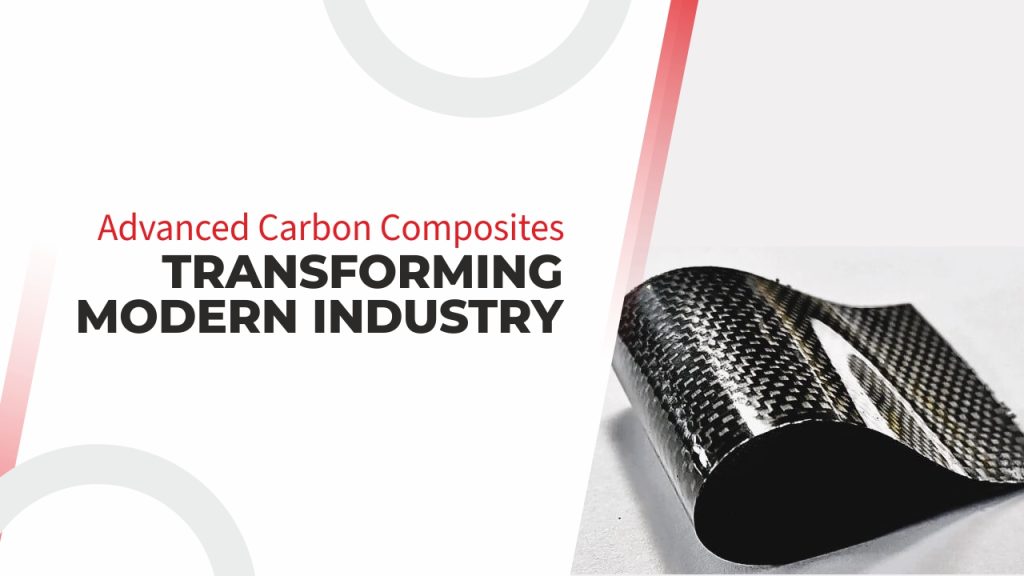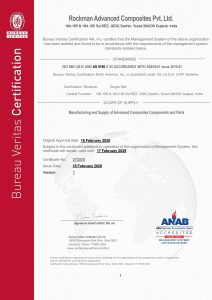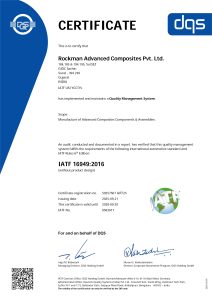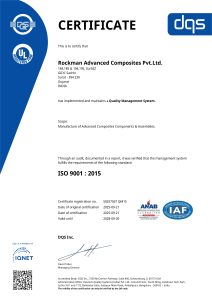Advanced carbon composites are lightweight, strong, cost-efficient, and customizable materials that are used across diverse industries, from infrastructure to recreation and from automotive to aerospace. This material combines resins with multiple types of fiber reinforcement and hence can be manufactured through diverse processes. Due to their exceptional strength, lightweight, and superior thermal and chemical resistance properties, this material is revolutionizing industries. This material is primarily made of carbon fibers embedded in a polymer matrix and is used in the creation of cutting-edge products for diverse sectors like aerospace, automotive, sports, and renewable energy.
What Are Carbon Composites?
Advanced carbon composites are materials that are made by combining carbon fiber with a resin or polymer matrix like epoxy, thermoplastics, or polyester. This combination gives the best of both the material, strength from the carbon as well as fire and chemical resistance from polymer. Advanced carbon composites have improved fiber orientation as well as enhanced polymers, making this material valuable in high-performance environments. This material is prized for its strength-to-weight ratio, durability, high stiffness, and resistance to chemicals, corrosion, and environmental exposures. Besides, advanced carbon composites can also be tailor-made to deliver strength and stiffness in specific directions or certain areas depending on their use case. Material engineers and designers have complete freedom to create new material combinations because of the limitless possibilities and versatility of carbon composites.
Key Properties of Advanced Carbon Composites
Carbon composite is constructed of carbon fibers reinforced by a carbon matrix and is classified as advanced carbon composite. It is a combination of carbon fibers with carbon matrix to showcase unique structural properties and the two different constituents macroscopically combine to produce a highly useful material. Some of the key properties of the material include:
High Strength-to-Weight Ratio – Advanced carbon composites are extremely lightweight and strong materials compared to other metals, which makes them the best and ideal for aerospace and automotive applications where weight reduction leads to better and improved performance. The low weight of advanced carbon composites also leads to energy savings as lightweight vehicles are known for consuming less fuel.
Resistance to Corrosion and Chemicals – Advanced carbon composites unlike metals are highly resistant to corrosion and chemicals. Thus, this extends the product’s lifespan and reduces regular maintenance needs so it is considered a low-maintenance material.
Low Thermal Expansion – Advanced carbon composites have very low thermal expansion compared to steel and aluminium, making this material useful for the production of 3D scanners and for military purposes like the manufacturing of high-precision satellite disks.
Durability – Advanced carbon composites have a long lifespan can resist fatigue and can even easily withstand diverse weather conditions, making this material highly durable and long-lasting.
Design Flexibility – Advanced carbon composites can be moulded into complex shapes and designs at a relatively low cost because this material can be modified by altering the fiber orientation, matrix material, or manufacturing techniques, thus giving designers the flexibility to make products of complex shapes.
Advanced Carbon Composites Applications across Industries
Advanced carbon composites, regarded as lightweight and high-performance materials, are ideally used across diverse industries:
Aerospace – Advanced carbon composites being light in weight are widely used for making aircraft parts like wings, interior parts, and fuselages. In the aviation sector, reducing the weight of the aircraft is vital for fuel efficiency. Aircraft that are majorly built with advanced carbon composites are light in weight which significantly improves fuel efficiency.
Automotive – In the automotive sector, advanced carbon composites are used in parts like chassis, body panels, and structural components to manufacture lightweight and fuel-efficient vehicles. Electric cars and high-performance vehicles are increasingly using advanced carbon composite parts that enhance handling and acceleration while reducing emissions.
Renewable Energy – Advanced carbon composites being lighter and stronger are used to make longer blades of wind turbines that improve the energy output of the wind farms. Besides, carbon composites are also used to make advanced solar panels that enhance efficiency and durability.
Defense and Space – Advanced carbon composites are increasingly used in the military and space sector where this material is used for making lightweight armor, unmanned aerial vehicles, and satellite structures. Carbon composite’s resistance to extreme temperatures makes them ideal for spacecraft re-entry systems.
Summary
Advanced carbon composites are revolutionizing industries through a material that is a unique combination of strength, lightness, and durability. With the ongoing innovations in materials science and manufacturing, the future of advanced carbon composites will be marked by greater sustainability, enhanced performance, and broader adoption across new sectors. Industries that embrace advanced carbon composites will improve product performance as well as drive the next wave of technological innovation. The traditional metals may soon be replaced by advanced composite materials, paving the way for lighter, stronger, and more sustainable solutions across diverse industries.








